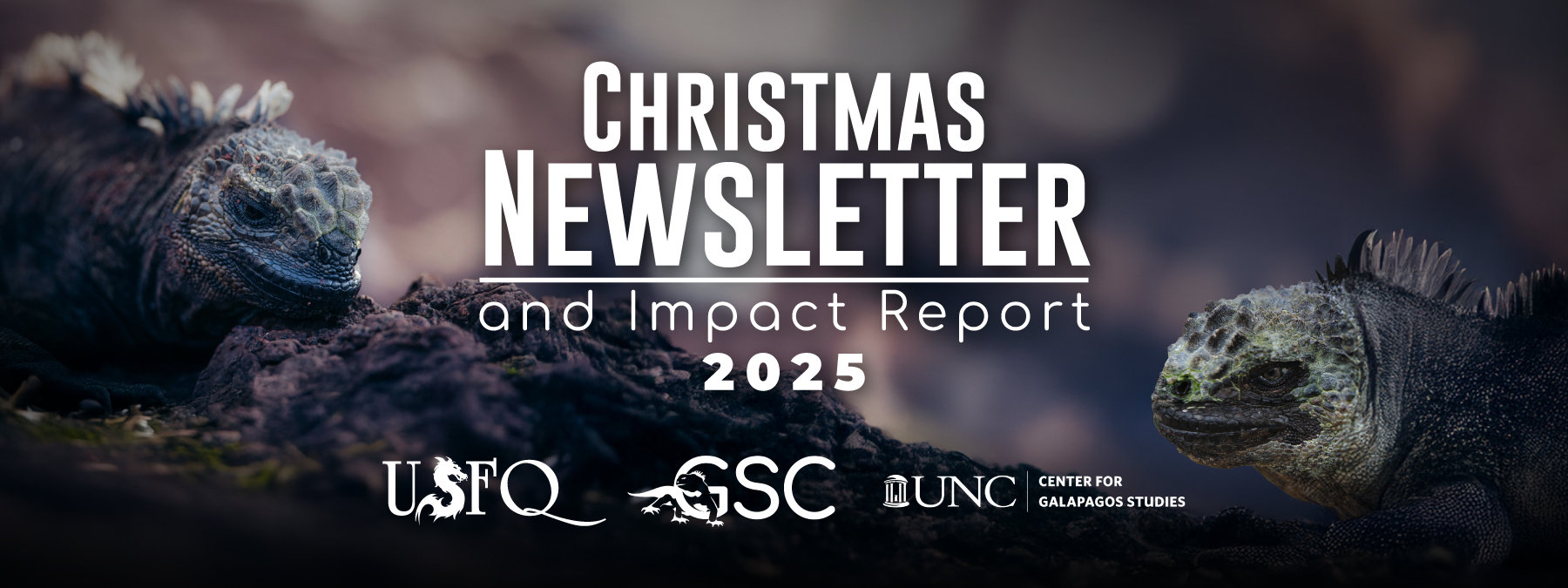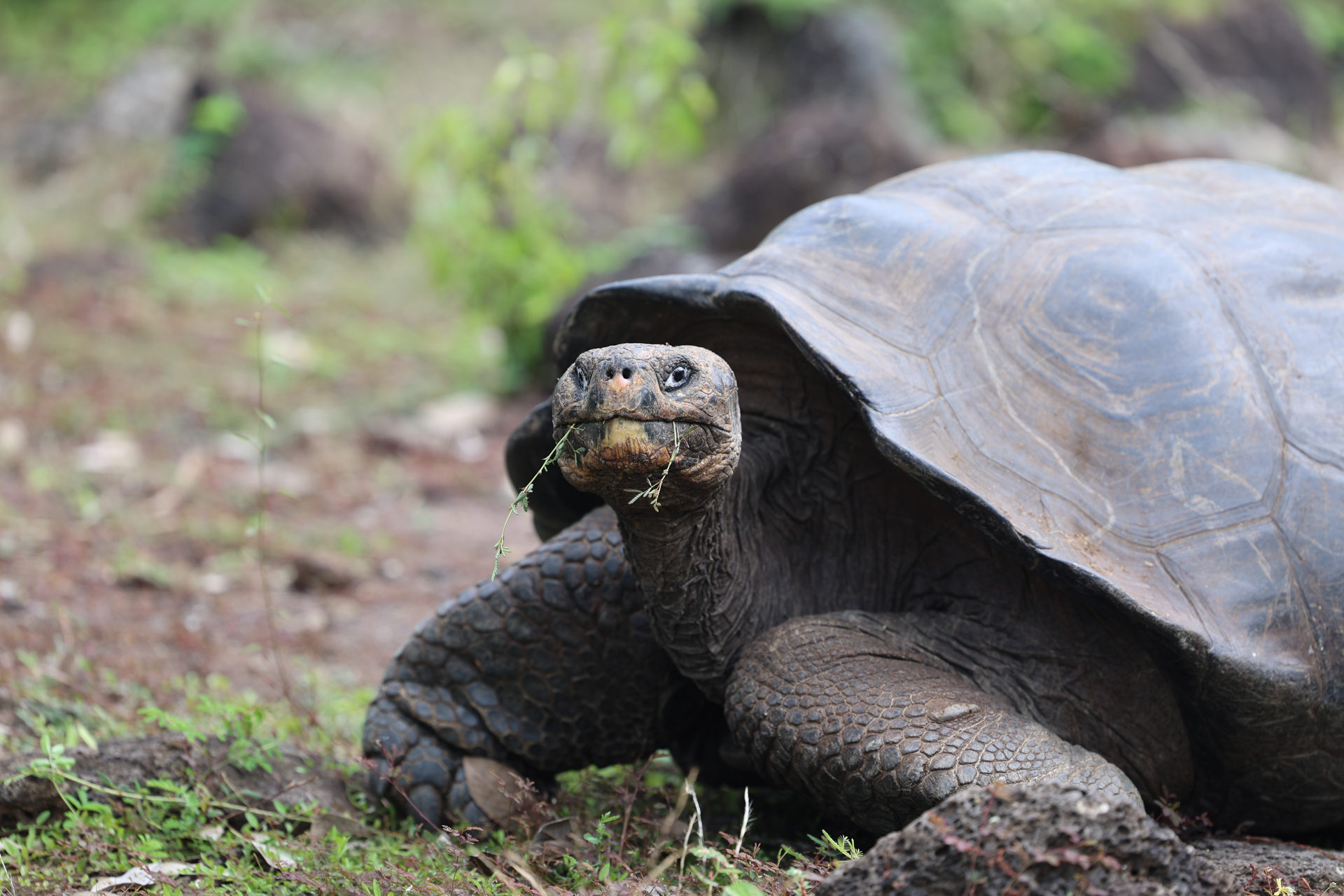Once again, Puerto Baquerizo Moreno served as the annual meeting point for science during the VII Galápagos Research and Conservation Symposium, held on Monday, July 14, and Tuesday, July 15 at the Charles Darwin Convention Center.
This renowned multidisciplinary event was organized by the Galapagos Science Center (GSC), the University of North Carolina at Chapel Hill (UNC), and Universidad San Francisco de Quito (USFQ), with the support of the Galápagos National Park Directorate (DPNG). It brought together more than 300 participants, including speakers, attendees, and collaborators. The symposium featured the participation of national scientists from USFQ and international researchers from institutions such as UNC, NC State University, University of the Sunshine Coast, and James Cook University, among others.

Additionally, representatives from various local institutions and organizations participated, including DPNG, the Agency for Regulation and Control of Biosecurity and Quarantine for Galápagos (ABG), Galápagos Conservancy Foundation, the Charles Darwin Foundation, and others.
The goal of this event was to share with both the scientific and local communities the latest advances in research conducted in the archipelago, including applied methodologies, current findings, and ongoing initiatives.

Gina Chowa, Associate Dean for Global Engagement at UNC School of Social Work, mentioned that: “Galápagos is globally known as a hub for conservation, with a strong focus on wildlife and marine research. But I believe it’s equally important to consider community development. I think this Symposium brings everyone together and shows how we can integrate practice, research, and policy. It allows us to inform one another and exchange knowledge.”
Over the course of two days, the seventh edition of the symposium featured 50 scientific talks on topics such as conservation, environmental change, biodiversity, community development and health, and the current state of marine and terrestrial ecosystems in the archipelago.

Nathalia Villegas, Associate Professor at the UNC School of Nursing, was one of the speakers and shared her experience presenting a project in the area of social sciences:
“I focused on the transmission of the Human Immunodeficiency Virus (HIV) and sexually transmitted infections. Our results show that this issue remains a prevalent problem, closely tied to stigma and discrimination. This makes it difficult to talk about the topic and for young people to access prevention, testing, and treatment. Although only 0.11% of registered HIV cases in Ecuador are from Galápagos, there is a significant underreporting issue. Many people do not get tested on the islands or receive treatment on the mainland. As a result, the statistics do not reflect the true local reality.”

This edition also included a poster session featuring 27 research projects, where scientists presented their work to attendees and the local community, fostering valuable knowledge exchange. The main themes included oceans, biodiversity, environmental change, community, and public health. Additionally, six local students from USFQ Galápagos’s Environmental Management program presented the results of their undergraduate thesis projects.
Luisa Tituana, a local student from the USFQ Galápagos Environmental Management program, shared her perspective:
“This is the first time I’ve attended the Symposium. It’s been a truly enriching experience where we not only learn from the presenters but they also learn from us. We’ve heard about pollution, biodiversity, conservation, species, and social topics, all of which highlight the importance placed on us as a community.”

This annual event not only strengthens the commitment to training the next generation of researchers in Galápagos, but also promotes collaboration among local, national, and international stakeholders, enabling the creation of strategic alliances for the conservation of the archipelago.
Several of the presenters were representatives of the Galápagos National Park Directorate, who shared with attendees and the local community key information about the institution’s ongoing projects, as well as updates and results on conservation efforts.
Edgar Masaquiza, technician from DPNG’s Quality Department, commented:
“Our project has been focused on coastal clean-ups since 2017. We have collected 100 tons of waste, 86% of which was plastic. I believe this event serves as an access point for the community, because many of us are unaware of what’s happening locally or the work being done by institutions. This event helps us understand, learn, and engage as citizens, and become part of the projects that are underway.”

The VII Symposium reaffirmed the importance of creating spaces that strengthen dialogue between science and the community. The information shared by researchers helps the local population better understand the processes that affect their environment, and it also provides decision-makers with science based tools to develop more effective and sustainable policies.






